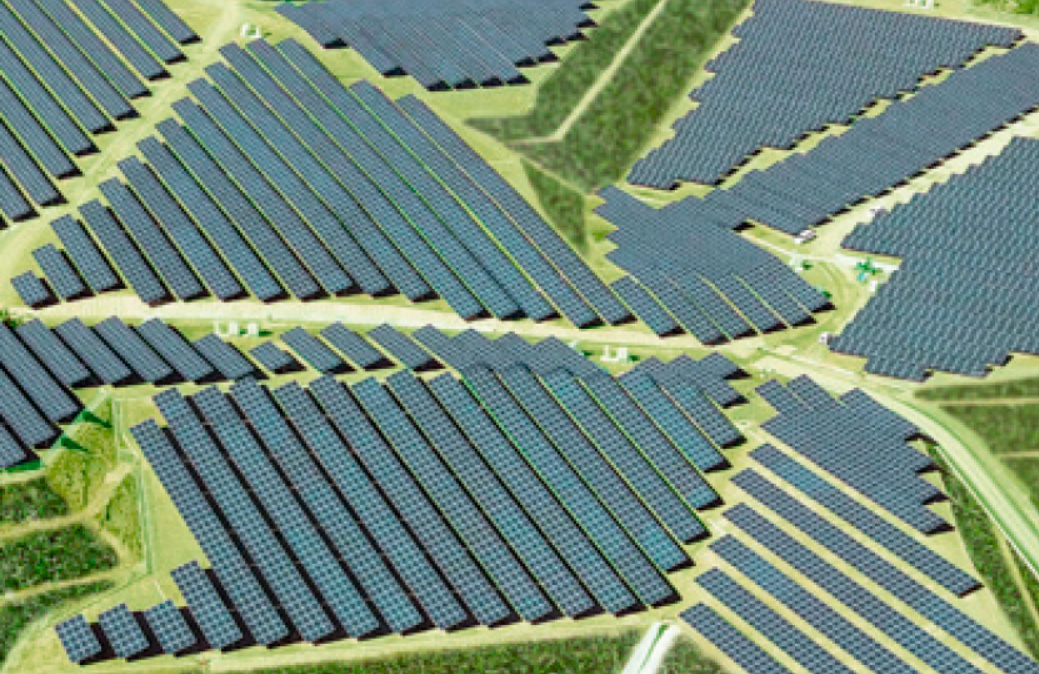

Providing comprehensive support for all companies that want to introduce renewable energy, the Abalance Group continues to go from strength to strength.

“We are promoting green energy and never see others as rivals but as partners, as no single company can realize the supreme goal of carbon neutrality.”
Ryu Junsei, CEO, Abalance Group
While Japan has lagged behind the likes of Europe in renewable energy development, momentum has been building quickly in Nippon, where the government has set forth an ambitious plan to reach carbon neutrality by 2050.
More than a decade ago, the island nation's initial renewable energy push was driven less by environmental concerns, and more so by an energy shortage due to the closure of dozens of nuclear plants following the Fukushima Disaster in 2011. Nuclear may still have a role to play in Japan's future energy mix, but the focus for many companies is renewables, with government policy rapidly shifting from a feed-in-tariff (FIT) system to the power purchase agreement (PPA) model that has become the norm in Europe.
As negativity and doubts surrounding solar and other renewable energies in Japan have fizzled away, the government, the banks, prime sector companies and smaller enterprises have all become increasingly active in supporting Japan's shift to carbon neutrality. This has led to a boom in interest in renewable energy projects, which bodes well for Abalance, a firm that acts as a one-stop solution for companies looking to get into the clean energy business.
"Our company plays a role in promoting green energy and solar power generation by offering comprehensive one-stop solutions, from planning to construction, as well as operations and maintenance, and there aren't many companies like that in Japan," states Abalance CEO Ryu Junsei. "As part of our efforts, we have accumulated knowledge and expertise in green energy, and we aim to transfer that knowledge to Japanese corporations interested in adopting such technologies. To facilitate this, we recently established a decarbonization business division that offers consultation services to Japanese companies seeking to set up solar panels or engage in green energy initiatives. Our mission is to nurture and support Japanese companies so they can achieve their green energy goals independently."
Mr. Junsei, who decided to pursue a career in renewable energy back in his university days, has been a long-time proponent. Back in 2003, when he first expressed his aim to develop clean energy projects, people thought it was a crazy idea. Twenty years on, however, and he heads up a company leading the charge in the sector, having witnessed a huge change in perspective from business leaders over the past two decades.
"When private companies, especially listed companies, actively engage in business with us, such as installing solar panels or participating in wind power generation, it brings about significant change," he says. And as an increasing number of private companies have looked to work with Abalance, the firm's workforce has grown 50% year on year. "Even those who were initially not involved in the green industry become well-versed in green technology within a year or two and take pride in the business they are engaged in."
Indeed interest from private companies in developing renewable energy is not just driven by environmental consciousness, but also financial incentives. And Japan's move to the aforementioned PPA model will go a long way in making those financial incentives more attractive to investors. "In Japan, we have been involved in green energy and CO2 reduction, primarily through the FIT system, which provides a tariff of around 10 yen per kilowatt-hour," Mr. Junsei explains. "However, in comparison, PPAs with corporate entities offer a higher rate of 15 yen or more per kilowatt-hour. Thus, PPAs are more financially lucrative. As a result, there has been a gradual shift from FIT to PPA in Japan."
While Japan has the highest ratio of solar panels per square kilometer of flat area in the world, there is still a long way to go to realize the full potential of solar power. Abalance is playing its part by supporting a number of initiatives, including the installation of solar panels in unused agricultural land, mountainous regions, and on the walls and rooftops of factories and city buildings. It has even developed a "solar tree" – consisting of a reinforced steel or concrete core, with branches made of sturdy metal or rebars resembling scaffolding – and flexible solar panels that can be bent. "We are continuously working on refining and developing our products," adds the Abalance CEO. "We aim to make solar panels installable anywhere, and we are constantly thinking about how to improve our products."
What's more, Abalance is also engaged in wind power and biomass power projects, as well as hydrogen. But the company’s vision is not only limited to Japan. With operations in five countries in Asia and a solar panel manufacturing plant in Vietnam, Abalance plans to expand overseas are well underway. "We already have a factory in Asia, but we also plan to explore the possibility of establishing production facilities in the U.S., Europe and Africa," Mr. Junsei reveals.
"Our main goal is to support advanced countries to achieve zero emissions by 2050, and for developing countries to realize zero emissions by 2060 or 2070. We may at some stage be faced with the renovation of obsolete solar panels, and hydrogen technology might be required. Demand for solar power has increased but may fluctuate. We don't know what the future requirements will be, but whatever they may be, we would like to offer products that suit the needs of that time."
0 COMMENTS